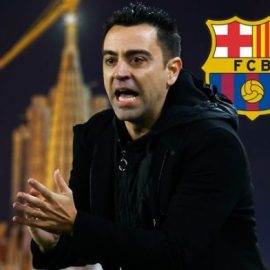Perhaps the most prolific and finest exporter of footballing talent in the world will always be Brazil. No country that has managed to remain a bastion for footballing excellence for over 50 years deserves to be considered anything less.
Yet, if Brazil have the tradition to deserve such an accolade, make no mistake that at the moment the quality of talent being produced from the academies of Spain deserve to push them mighty close, as they continue to produce prodigious talents and at a quite prolific rate.
Spain has always been a producer of sublime footballing talents, from the dynamism of Rafael ‘Pichichi’ Aranzadi and Ricardo Zamora in the 1930s through to the development of the likes of Emilio Butragueno, Andoni Zubizarretta and Fernando Hierro in the 1980s and of course, the goalscorer supreme, Raul in the 1990s.
Yet even by these standards, the sheer number and quality of talents being produced by Spain is quite unprecedented, as is reflected by the dominance of their national team over the international game and, the presence of the likes of Carlos Puyol, Iker Casillas, Xavi, Andres Iniesta, Cesc Fabregas, David Villa and Fernando Torres at the top table of world football.
But the development of this identifiable brand of prodigious Spanish football talent shows no signs of abating, and is reflected throughout the domestic game in Spain which continues to produce some immensely gifted individual talents which should ensure that Spain’s success continues into the next generation.
The latest to snatch the headlines was the eye-catching performance of Racing Santander’s young midfielder Sergio Canales-an 18 year old midfielder whose two-goal performance, and two wonder goals no less, was at the heartbeat of his team’s 2-1 victory over Champions League chasers Sevilla.
A prodigious talent at youth levels, his mature arrival into the Spanish league for Racing Santander has left pundits and players alike purring, and proclaiming their “new star.” Manager Miguel Angel Portugal merely insisted: “Sergio Canales is talented in many positions.” But one writer was so moved by his performance he said: “It’s not often you get to witness the birth of a true star, still less a Spanish one.”
And with the likes of Real Madrid and Chelsea strongly interested in the wunderkind, who is out of contract at the end of the season, Portugal admitted: “His future is up to the board. It would be best for Racing if he stayed until he matures, but his family will have their own thoughts.”
Yet Canales arrival was in keeping with a tradition of emerging young Spanish talents, even this season. The story of the early season was of Athletic Bilbao’s 16-year old starlet Iker Muniain, a record breaker for his club, and one whose close control and nimble speed should ensure a bright future.
His team-mate, Bilbao legend Joseba Etxeberria, was struck by his potential. He said: A footballer of this class integrates themselves very well – football only has one language, and Iker has mastered it. Muniain will certainly be a quality player, not just for this team. If he continues along this path, I believe he will become a world class player.”
But looking beyond the prodigies, their development is perhaps the most eye-catching for the sheer maturity displayed by these youngsters, but it is hardly not in keeping with the current pattern in the Spanish league. A number of the break out players in the Spanish league this season have been emerging young Spaniards.
From the continued development of Juan Mata, working in conjunction with Spanish international team-mates David Villa and David Silva at Valencia, to the star performances of Jesus Navas on the Sevilla right flank, the emerging young talents of La Liga continue to be the homegrown ones, and it is these who are favourites to break into the Spanish national team.
Yet looking beyond the more obvious international talents, there are talents aplenty who are rapidly developing at apace, and are taking positions of seniority at their clubs even at a young age.
For all the problems which Atletico Madrid have endured this season, the performances of young goalkeeper Sergio Asenjo suggest that they do not need to worry about a goalkeeper any time soon, yet his path to the national team is barred by Iker Casillas and Pepe Reina. Not to mention the likes of Diego Lopez and Victor Valdes, now is not the time to be a young Spanish goalkeeper.
Then there is Pedro, whose goalscoring exploits at Barcelona have proved to be more than useful to Pep Guardiola’s all-conquering team, and seen him become the first player to score in six different competitions in one season.
His rise has been rapid, though not as rapid as that of his team-mate Sergio Busquets, but when Vicente Del Bosque recently stated: “Pedro is a possible World Cup player with or without the goal he scored in the Club World Cup final against Estudiantes”few disputed it, such has been his rise to the top.
There are others, and plenty of them. Honourable nods should go to Osasuna’s 20-year old full-back Cesar Azpilicueta who has attracted plenty of attention from some of Europe’s bigger teams.
Another should go to Esteban Granero-one young player whose reputation has been enhanced by the Galacticos project at Real Madrid. And of course Barcelona’s forgotten prodigy Bojan Krkic-whose career has stalled somewhat after a stellar beginning, yet one whose talent should never be doubted.
One thing which is beyond doubt is that regardless of whether this generation of Spanish footballers can manage to emulate their illustrious predecessors or not, the Spanish league will continue to churn out players of the highest quality. Spain’s conveyor belt of talent shows no sign of slowing down.
Add Sportslens to your Google News Feed!






